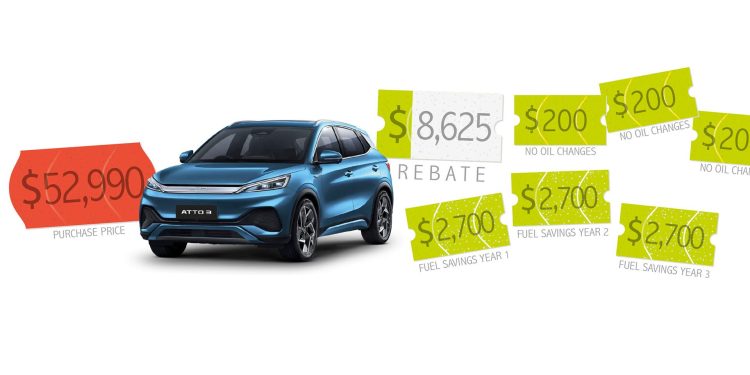EV Torque – an EV is cheap to own
Words: Mark Gilbert
Still wondering about EV ‘price parity’ versus a conventionally powered vehicle?
We may be closer than you think. In most advanced economies, transportation is the largest source of carbon dioxide pollution. Electrification of this sector is widely considered as one the best strategies for cutting back on ‘climate change’ emissions.
But this argument is not always compelling when it comes to consumer decision making. Let’s face it, for most of us it’s the sticker price that is the number one concern when making the decision about the car we drive.
Economic theory suggests that mass adoption of electric vehicles will occur when the cost to buy one drops to being equal to (or even becomes cheaper than) the price of one with a fossil fuel-fired engine.
Some countries have made their minds up; the future of the automotive industry is not going to be powered by fossil fuels and so manufacturers have pivoted towards change. Countries like the UK and Germany have openly declared an end to the sale of ICE vehicles in 2030. And so car makers from Jaguar to GM have committed to ending the production of ICE cars.
New Zealand hasn’t yet specified a date as to when this might happen but the Government has signaled it will likely be sometime between 2030-2035. As new emissions standards start to bite, this may bring us to an effective phase out by the end of the decade anyway.
What’s remarkable is how quickly the debate has shifted from whether or not the future is electric to how fast will the electric future arrive. Globally EV sales grew 80 per cent in 2021. Here in New Zealand, EV sales have rapidly increased to secure around 20 per cent of the monthly new car sales in 2022.
It’s the track towards price parity that is behind this surge in uptake. There are two ways to look at price parity; the first is the sticker price, the second is the total cost of ownership (TCO).
Traditionally the price has been the primary concern. Consumers pay upfront for the vehicle but don’t really consider the cost of servicing or fuel. In New Zealand, this mentality has encouraged the uptake of cheaper, imported vehicles which also affects the safety of our fleet. However, buyers are increasingly understanding the importance of the total cost of ownership.
What’s driving this change in mentality? Government incentives for one. Buyers of an EV receive an incentive on the upfront purchase price, essentially a discount. This advantage is further enhanced because purchases of high emitting vehicles are now penalised through the Clean Car legislation. In other words, EVs are getting cheaper and high-emitting cars are becoming more expensive.
The second factor driving the decreasing cost of EV ownership is fuel. EV drivers don’t pay road user charges for the time being (expect this to change within the next year or two). By contrast, an owner of a petrol vehicle pays these taxes at the pump, and an owner of a diesel car pays these separately.
I drive an Audi e-tron of a 2019 vintage. I predominantly use the public charging network available via ChargeNet, OpenLoop, and Vector. My average monthly spend on ‘filling’ the car is usually between $90-$110.00. When I compare this with people driving ICE vehicles, some are spending the equivalent amount every week! Some drivers are spending more than $200 a week.
Additionally, when I take my Audi in for servicing, it gets a software upgrade. Some of these upgrades actually increase the car’s efficiency, and therefore my overall range! Without any physical changes to my three-year-old car, it actually gets better. An EV has about 20 moving parts as far the drivetrain is concerned and so servicing costs are much lower.
Where does that leave us? According to analysis done by EECA, the evidence shows that the TCO is already cheaper for an EV than an equivalent ICE vehicle here in NZ. That’s right – when you consider all relevant costs to buying and using a car – in most cases it’s actually cheaper to buy an EV.





